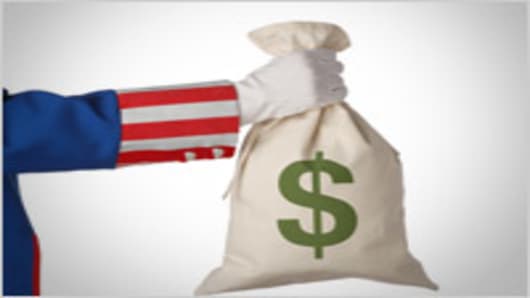Last week, the ratings agency announced a review of whether these bailout assumptions still apply after passage of the Dodd-Frank financial regulation bill. The Moody's review will be the truest test yet of President Obama's promise that the legislation—derided by Republicans as a bailout bill — can end the "Too Big To Fail" dynamic that has encouraged financial risk taking and given these banks an unfair advantage.
The implicit government guarantee these banks enjoy is a subsidy. The "five notches of uplift from government support assumptions" that Moody's gives to Bank of America translate into real profits for Bank of America. Without a presumed bailout, Bank of America's senior debt would be rated Baa3, just barely on the right side of the "Investment Grade"/"Speculative Grade" boundary. The presumed "government support" raises the bank's debt rating to A2, which is "very low credit risk."
Even Wimpy from "Popeye" would be a "very low credit risk" if you could count on Ben Bernanke and Tim Geithner to pay for his hamburger.
As a result, all the big banks pay lower interest rates than they would pay in a market environment. Put another way: Anyone lending money to big banks (by buying their bonds, for instance), does so on the assumption that if the bank cannot repay the loan, U.S. taxpayers will. It's hardly shocking that experts think our recently bailed-out and very politically connected banks are still too big to fail, but the Moody's report makes it official.



